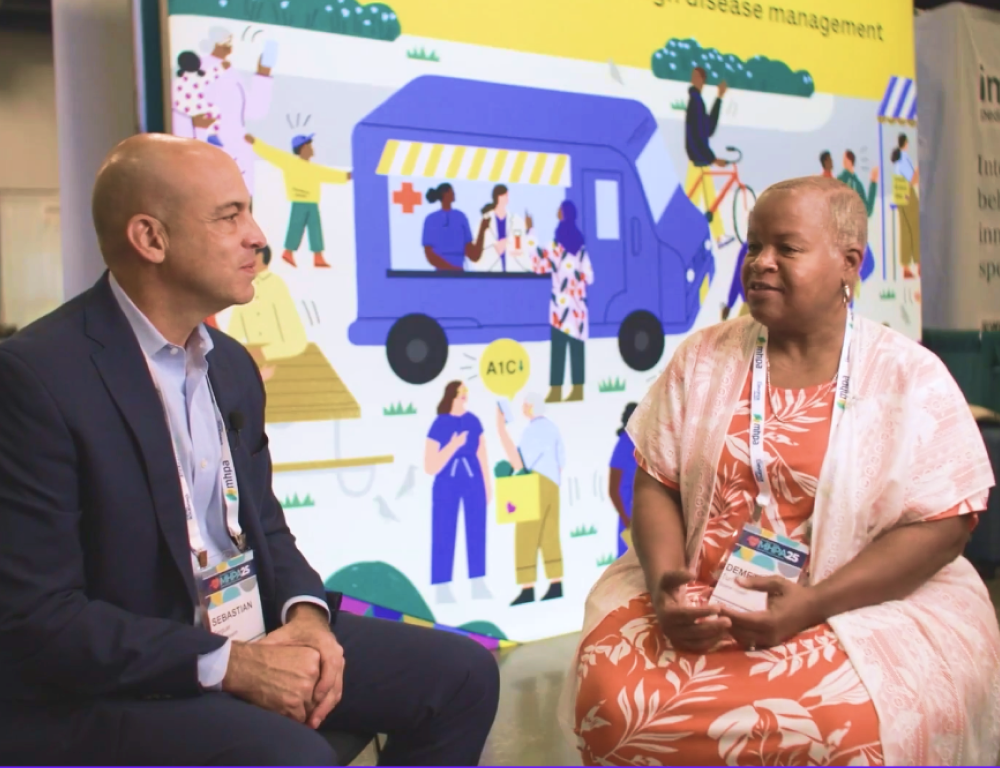Bringing Support Home: 3 Key Insights From Our Care Team Members

If you or a loved one have ever been hospitalized, you might have noticed that every dose of medication that a patient takes in a hospital is given and observed by a trained healthcare professional — they might even help the patient take the medication, answer questions, and monitor any side effects. This practice is called Directly Observed Therapy, and it’s the gold standard for ensuring that patients take every dose of their medication. When patients take their medications as prescribed, they can better manage their conditions and improve their overall health.
But when they go home, patients lose this support, and numerous factors can impact their ability to keep up with their medications.
To address this, we bring medication support to patients no matter where they are with our holistic model of care that combines people, science, and technology. Our 360-degree program enables medication adherence in patients with asthma, diabetes, COPD, hypertension, sickle cell disease, tuberculosis, HIV, hepatitis C, solid organ transplant, depression, and substance use disorders.
Our care team is at the heart of this approach; they’re motivational, supportive, energetic, and empowering. Through personalized, daily engagement with patients, our care team can see the whole person, understand every patient’s unique adherence challenges, tackle root issues, and empower pro-health behaviors.
While each patient has individual concerns, our care team members have identified some commonalities and gained important insights about both their patients’ challenges and what makes our approach so successful.
Patients quickly warm to a program of personalized care
Our program uses asynchronous video to enhance Directly Observed Therapy (video DOT). With our easy-to-use app, patients record themselves self-administering their medication, and a care team member reviews the video and records one in return. These care team videos offer positive reinforcement, feedback, encouragement, tips, and other helpful information and are supplemented by asynchronous in-app chats and scheduled check-in calls.
Although our program is a new experience, patients quickly warm up to the support. “They almost always quickly relax and enjoy engaging either in the chat or via video with the care team, especially when we ask about their interests and overall well-being,” says Nurse Liz Bibart, RN. “They truly like the personal touch we bring to the program.”
Health Coach Amrita Deol agrees, “Patients often seem very open to and curious about the program because they’ve never participated in anything like it. They love that we are patient, empathetic, and explain things fully.”
As the care team works to grow and strengthen these personal connections, something else happens. Patients often begin to think of the care team as family. “Patients feel like we are family while they are in the program. I get excited to see them daily and chat about updates and how they are feeling,” explains Liz.
{{guide-middle}}
Nonadherence is often a symptom as well as the problem
There are many reasons why people don’t or can’t take their medications correctly. Some are related to the medication itself (for example, difficulties administering it or adverse side effects), and others are related to behavior (forgetfulness, skepticism of the medication’s benefits, etc.). Our care team can help patients address these challenges through education, encouragement, pharmacist medication reviews, small financial incentives, motivational interviewing, and other techniques.
Unfortunately, some factors causing nonadherence are often beyond the patient’s power to easily change. Patients in vulnerable groups face a host of social determinants of health (SDOH), like a lack of safe housing, transportation, income, access to nutritious food, and more that keep them from taking their medications as prescribed.
However, the close personal connections forged between patients and the care team enable team members to identify SDOH factors their patients face and take action — either directly or by connecting patients with resources that can help address their specific challenges.
“The more patients trust us, the more we learn about their real issues,” explains Hillary Williams, our Care Team Lead.
Care team members help patients through various SDOH-related challenges, like helping patients find financial support for medications, navigating transportation issues, or getting mental health support.
“I even shared some resources with one of my patients to get a booster seat so they could take their kid to their doctor appointments,” shares Health Coach Keyerra Anderson.
Our care team is helping patients make important changes
The success of our approach to medication adherence is evident: nineteen peer-reviewed journal articles (so far) and numerous other customer publications validate our ability to help patients achieve up to 98% dose-by-dose adherence.
Care team members see the program’s effectiveness in a somewhat more personal light. “For me it’s when patients share how the program has helped improve their adherence and their health, especially when there’s clear data evidence, such as A1C,” adds Nurse Ashleigh Zimmerman.
Throughout the program, Amrita says, “I’ve seen improved test results, and I’ve seen an increased appreciation for our team as patients feel more comfortable opening up about their lives and the things they’re dealing with.” For Health Coach Chrystal Webb, “It’s so satisfying to feel like I’m actually helping them get through tough times.”
As a result of working with patients in our program, Liz reflects, “I’ve come to realize the fundamental need for continuing the education of patients after they start new medications, whether it be oral diabetic meds, inhalers, insulin, etc. The reality of today’s healthcare is that patients are not afforded adequate time for education and questions due to the constraints of primary care visits.”
“We serve an important role in our ability to assess understanding of their disease process, medications, and techniques that result in better overall outcomes for our patients,” Liz adds.
Chrystal’s reflections encompass our care team’s mission, “Everyone has a story that needs to be heard…our patients appreciate what we are doing, and it is making a difference in their health and lives.”




Download this Guide to Managing Medication Adherence to learn about the medication adherence problem, its many and varied causes, the available tools, and the comprehensive solution.

Download this Guide to Managing Medication Adherence to learn about the medication adherence problem, its many and varied causes, the available tools, and the comprehensive solution.






.png)
